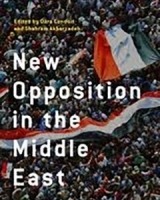Pulling and Gouging: The Sadrist Line’s Adaptable and Evolving Repertoire of Contention

Abstract
Since the US-led invasion of Iraq in 2003, international observers have been fascinated by the figure of Muqtada al-Sadr, his apparent volatility, and his strident and militant opposition to US occupation. Journalists and commentators have tried to understand this previously unknown social and religious leader and his ability to mobilise Iraqis in the hundreds of thousands to participate in contentious politics, deliver social services, attend public religious festivals in the midst of war, and even take up arms—both to resist the occupation of Iraq by the overwhelmingly supe-rior US military and to defend communities and holy sites against the so- called Islamic State group. Born into an influential Iraqi clerical family that suffered for its resistance to Ba’ath authoritarianism, al-Sadr repre-sented resistance to US occupation and a danger to the post-2003 political settlement. During its operation between 2003 and 2008, analysts were likewise preoccupied with the Jaysh al-Mahdi or Mahdi Army, the move-ment’s armed group, which earned a reputation for brutal violence and predatory criminality. For all the attention its political leadership and armed group received, the large constituency of Iraqis that identifies with the al-Sadr family and refers to itself as al-Khatt al-Sadri, or the Sadrist Line, remained an enigma to many. Is it a ‘mob’ of poor Iraqis blindly following the irrational direction of a scowling firebrand cleric, an Iranian proxy acting to frustrate Iraqi democracy and US interests, or a Machiavellian political movement seeking to control the fledgling Iraqi state for its own political and material gain? The symbolic infiltration of the Green Zone—Baghdad’s secure political and administrative district—by thousands of Sadrist Line participants and other politically active Iraqis in April 2016 again brought international attention to this movement and its ability to mobilise Iraqis to participate in contentious politics.









